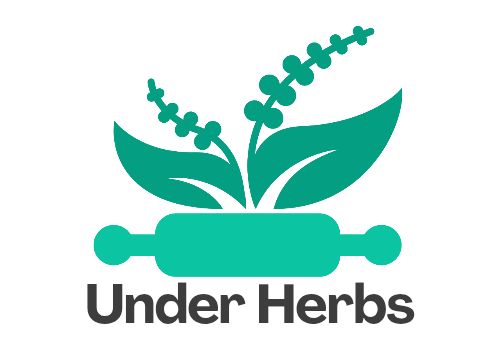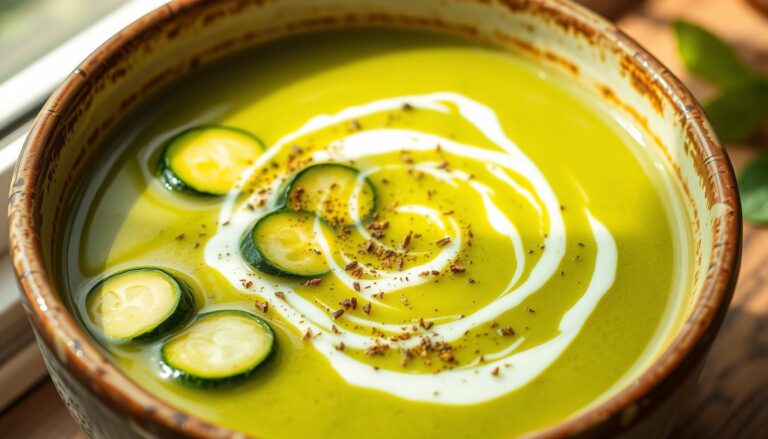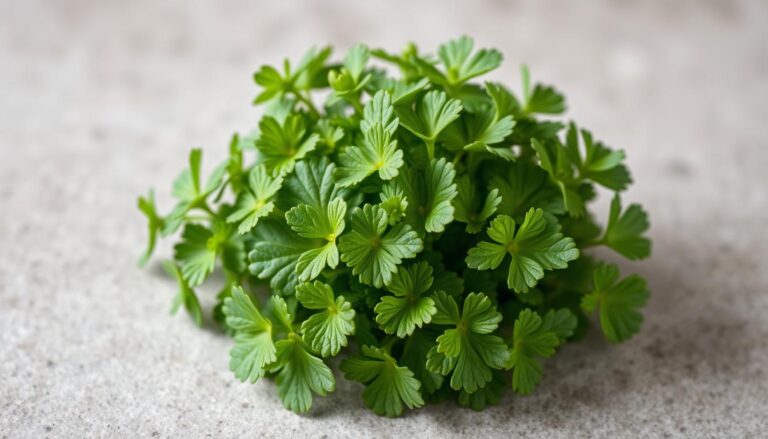Lemon Thyme Herb A Versatile Culinary Delight
Ever thought of adding a special touch to your cooking without making it too strong? Try using a versatile herb that mixes thyme’s earthy taste with a zesty lemon flavor.

This cultivar is a joy for your taste buds and a treat for your senses. Its bright aroma can make any dish stand out. Use it in soups, salads, or as a marinade for meats.
Key Takeaways
- Discover the unique flavor profile of lemon thyme herb
- Learn about its various uses in cooking and culinary applications
- Understand how to incorporate it into your daily recipes
- Explore the benefits of using lemon thyme herb in your kitchen
- Find out how to care for this versatile herb to ensure a continuous supply
The Aromatic World of Lemon Thyme
Thymus x citriodorus, or lemon thyme, is a versatile herb. It adds a unique twist to cooking and aromatics. You can use it to give a refreshing citrus flavor to many dishes.
Origin and Botanical Classification
Lemon thyme is a mix of Thymus vulgaris (common thyme) and Thymus pulegioides (pennyroyal thyme). It’s part of the Lamiaceae family, known for its fragrant herbs. This shows its botanical importance and connection to other aromatic herbs.
Distinctive Characteristics
Lemon thyme is known for its lemon-scented leaves and delicate flowers. These flowers are often pink to lavender. Its flavor is a mix of thyme’s earthiness and a hint of citrus. This makes it a valuable addition to various recipes.
Comparison to Common Thyme
Common thyme has a stronger earthy flavor. Lemon thyme, on the other hand, has a lighter, more citrusy taste. This makes lemon thyme great for dishes needing a subtle citrus note, like seafood or poultry.
Growing lemon thyme in your garden is easy. It’s loved by herb enthusiasts for its aromatic properties and culinary uses. Its easy growth and care make it a favorite among gardeners.
The Remarkable Health Benefits of Lemon Thyme Herb
Lemon thyme herb is packed with nutrients and has healing properties. It’s great for a healthy lifestyle. You can use it in your food or as essential oil.
Nutritional Profile
Lemon thyme is full of vitamins and minerals. These are key for staying healthy.
Vitamins and Minerals
It’s rich in vitamins C and A. These help your immune system and eyes. It also has iron and manganese for oxygen and antioxidants.
| Nutrient | Amount per 100g | Health Benefit |
|---|---|---|
| Vitamin C | 10mg | Boosts immune system |
| Iron | 5mg | Essential for oxygen transport |
| Manganese | 1mg | Antioxidant properties |
Essential Oils Content
The essential oil in lemon thyme has compounds like citral and thymol. These have antimicrobial and antifungal properties. They help with health benefits like antioxidant effects.

Medicinal Properties
Lemon thyme is known for its healing uses. Its antioxidant effects protect cells. Its antimicrobial benefits fight infections.
Antioxidant Effects
Antioxidants in lemon thyme, like flavonoids, fight free radicals. This may lower the risk of diseases like heart disease and cancer.
Antimicrobial Benefits
Lemon thyme’s antimicrobial properties fight bacteria and fungi. It’s good for minor infections and overall health.
Respiratory and Digestive Support
Lemon thyme helps with respiratory issues like coughs and bronchitis. It also aids digestion by easing indigestion and bloating.
Adding lemon thyme to your meals boosts health and flavor. It’s versatile, whether fresh, dried, or as essential oil. It’s a great way to improve your wellness.
How to Grow Your Own Lemon Thyme Plant
To grow lemon thyme successfully, you need to know the right growing conditions and how to propagate it. This herb is hardy and grows well in specific conditions, making it easy to cultivate.
Ideal Growing Conditions
Lemon thyme loves well-drained soil and full sun to partial shade. Meeting these conditions is key for its healthy growth.
Soil Requirements
The soil should be slightly acidic to neutral, with a pH between 6.0 and 7.0. It’s important to ensure good drainage to avoid root rot.
Sunlight Needs
Lemon thyme needs at least 4-6 hours of direct sunlight daily. While it can handle partial shade, full sun enhances its flavor and aroma.
Propagation Methods
You can grow lemon thyme from seeds or cuttings. Each method has its own benefits.
From Seeds
Starting with seeds lets you grow more plants. Plant seeds in well-drained soil in spring or fall.
From Cuttings
Using cuttings is quicker and ensures the new plants have the same traits as the parent. Take cuttings in spring or early summer.
Container vs. Garden Growing
Lemon thyme can grow in containers or garden beds. Containers give better control over soil and are easier to move.
| Growing Method | Advantages | Disadvantages |
|---|---|---|
| Container Growing | Easy to control soil conditions, portable | Limited root space, requires more frequent watering |
| Garden Growing | More space for root growth, less frequent watering | Less control over soil conditions, more susceptible to pests |
Essential Lemon Thyme Plant Care Guide
To keep your lemon thyme plant thriving, it’s crucial to understand its specific care requirements. Lemon thyme is a low-maintenance herb, but it still needs proper care to flourish.
Watering Requirements
Lemon thyme requires moderate watering. Make sure the soil is moist but not waterlogged. Excessive moisture can cause root rot. Check the soil regularly and water when the top inch feels dry.
Pruning Techniques
Regular pruning is essential for maintaining the shape and health of your lemon thyme plant. Harvesting the herb regularly by snipping off sprigs encourages new growth and prevents the plant from becoming leggy.
- Pinch off flower buds to direct the plant’s energy towards leaf production.
- Cut back the plant after flowering to maintain its shape.
Common Pests and Diseases
Lemon thyme can be susceptible to pests like aphids and spider mites. Regularly inspect your plants and treat any infestations promptly. Root rot is a common disease caused by overwatering; ensure good drainage to prevent this.
Seasonal Maintenance Tips
In colder climates, protect your lemon thyme plant from harsh winters by mulching or bringing it indoors. In warmer climates, continue to harvest regularly throughout the year. Adjust your watering schedule according to the season, as the plant’s needs may vary.
10 Delicious Culinary Uses for Lemon Thyme
Lemon thyme adds a bright, citrusy taste to your cooking. It’s great for enhancing flavors in meats, fish, vegetables, and baked goods.
Enhancing Poultry Dishes
Lemon thyme is perfect with poultry. It adds a subtle citrus flavor that goes well with roasted or grilled chicken and turkey. Mix it into marinades or rubs for a deliciously flavored roast.
Seafood Pairings
The herb’s citrus notes are great with seafood, especially delicate fish like salmon and sole. Use lemon thyme in a poaching liquid or as a seasoning for grilled fish.
Vegetable Preparations
Lemon thyme can make simple vegetable dishes better. It adds a hint of lemon to roasted or sautéed vegetables. It’s especially good with roasted potatoes and carrots.
Infused Oils and Vinegars
You can infuse oils and vinegars with lemon thyme. This makes flavorful condiments for salads and marinades. It’s a great way to enjoy the herb all year.
Bread and Pastry Applications
Lemon thyme is great in bread and pastry recipes. It adds a unique twist to traditional baked goods. It pairs well with lemon or orange flavors in desserts.
As Chef Jamie Oliver once said, “Herbs like lemon thyme can make a huge difference in cooking. They add depth and complexity to even the simplest dishes.”
“Herbs are a fantastic way to add flavor without adding salt or sugar.”

By using lemon thyme in your recipes, you can make delicious and aromatic dishes. Try different combinations to find your favorite ways to use this versatile herb.
Must-Try Lemon Thyme Herb Recipes
Discover the magic of lemon thyme recipes. They mix citrus and herbal flavors perfectly. This versatile herb can make any dish, from savory to sweet, stand out.
Lemon Thyme Roasted Chicken
Roasted chicken is a classic dish that lemon thyme makes even better. Rub a whole chicken with olive oil, garlic, lemon thyme, salt, and pepper. Then, roast it until it’s golden brown.
Mediterranean Fish with Lemon Thyme
Fish and lemon thyme are a great pair, especially with Mediterranean flavors. Bake fish fillets with lemon thyme, cherry tomatoes, and feta cheese. It’s a healthy and tasty meal.
Lemon Thyme Infused Desserts
Lemon thyme can also spice up desserts. Here are a couple of ideas:
Lemon Thyme Shortbread
Make shortbread cookies with a twist by adding lemon thyme to the dough. These aromatic cookies are perfect for tea time.
Honey Lemon Thyme Ice Cream
Make a unique ice cream by infusing cream with lemon thyme and honey. It’s a refreshing dessert for hot weather.
Refreshing Lemon Thyme Beverages
Lemon thyme is great for making refreshing drinks. Here are a few ideas:
Lemon Thyme Iced Tea
Steep lemon thyme in hot water to make tea. Chill it for a refreshing summer drink. Add lemon juice and honey to taste.
Lemon Thyme Cocktails
Lemon thyme can also be used in cocktails. Mix lemon thyme syrup with gin, lemon juice, and soda water for a unique cocktail.
Here’s a comparison of different lemon thyme recipes:
| Recipe | Main Ingredients | Preparation Time |
|---|---|---|
| Lemon Thyme Roasted Chicken | Chicken, lemon thyme, garlic, olive oil | 1 hour |
| Mediterranean Fish with Lemon Thyme | Fish fillets, lemon thyme, cherry tomatoes, feta cheese | 30 minutes |
| Lemon Thyme Shortbread | Butter, sugar, flour, lemon thyme | 20 minutes |

Lemon Thyme Essential Oil: Benefits and Uses
The benefits of lemon thyme herb are even more concentrated in its essential oil. You can use it in many ways to improve your health. This essential oil is a strong extract that holds the herb’s healing properties.
Extraction Process
Lemon thyme essential oil is made through steam distillation. Steam is passed through the herb’s leaves and flowers. This releases the oil, which is then collected.
The result is a concentrated oil. It keeps the herb’s scent and healing powers.
Aromatherapy Applications
In aromatherapy, lemon thyme essential oil is loved for its fresh and uplifting scent. You can use it in a diffuser to:
- Uplift your mood
- Reduce stress and anxiety
- Improve focus and concentration
Its citrusy smell also purifies the air. It helps create a calm atmosphere.

Topical Uses and Precautions
When using lemon thyme essential oil on your skin, mix it with a carrier oil first. This prevents skin irritation. You can apply it to:
- Relieve muscle tension
- Soothe minor cuts and scrapes
- Reduce the appearance of skin imperfections
Always do a patch test before using a new essential oil. If you have sensitive skin, talk to a healthcare professional.
DIY Home Products
Lemon thyme essential oil is great for making DIY home products. You can make:
- Natural cleaning solutions
- Aromatic potpourri blends
- Homemade skincare products
Its antimicrobial properties are perfect for homemade cleaners. Its nice scent is great for fragrant blends.
Harvesting and Preserving Lemon Thyme Herb
To enjoy lemon thyme all year, you need to harvest and preserve it right. Harvesting at the right time captures its flavor and aroma. Preservation lets you enjoy it even after the growing season ends.
Optimal Harvesting Times
The best time to pick lemon thyme is in the morning. This is after the dew has gone but before it gets hot. Regular harvesting keeps the plant healthy and full of new growth.
Drying Methods
Drying is a great way to keep lemon thyme fresh. There are different drying methods, each with its own benefits.
Air Drying
Air drying is simple and traditional. Just tie the stems in small bunches and hang them upside down in a warm, dry, dark spot. This method keeps the herb’s natural oils and flavor.
Dehydrator Techniques
Dehydrators dry lemon thyme faster and better. Place the sprigs in a single layer on the trays. Set the temperature low.
Freezing Techniques
Freezing is great for keeping lemon thyme fresh. Chop the leaves and mix with olive oil. Then, freeze them in ice cube trays. This makes it easy to add to recipes.
Long-term Storage Solutions
After drying or freezing, store lemon thyme properly. Dry lemon thyme goes in airtight containers in a cool, dark place. Frozen lemon thyme stays in a freezer-safe container or bag.
As Gardening Expert, “Preserving herbs like lemon thyme not only extends their shelf life but also allows you to enjoy their flavors year-round.”
Companion Planting with Lemon Thyme
Lemon thyme is more than just a tasty herb. It’s also a great companion plant. Adding lemon thyme to your garden can make it healthier and more productive.
Beneficial Combinations
Lemon thyme goes well with many plants. It’s especially good with marigolds, rosemary, and vegetables like tomatoes and carrots. These pairings can boost growth and taste.
Pest Deterrent Properties
Lemon thyme keeps pests away, like aphids and mosquitoes. These pests can harm your plants. So, planting lemon thyme near them can protect them.
Garden Design Ideas
Using lemon thyme in your garden design is smart. It looks good and serves a purpose. You can use it in border plantings or as a fragrant ground cover.
Pollinator Attraction Benefits
Lemon thyme draws in bees, which are key for a thriving garden. By planting lemon thyme, you help local bees and other pollinators.
Conclusion: Embracing the Versatility of Lemon Thyme
You now know how great lemon thyme is for your daily life. It makes food taste better and is good for your health. You can use it in many ways, from simple dishes to complex recipes.
Growing your own lemon thyme means you always have fresh herbs. It’s perfect for cooking and health routines. Lemon thyme is easy to grow, making it great for any garden or indoor spot.
Lemon thyme is more than just a kitchen herb. It’s also good for your health and looks great in gardens. Its citrus flavor and many benefits make it a must-have in any kitchen or wellness routine.
FAQ
What are the benefits of using Lemon Thyme in cooking?
Lemon Thyme brings a unique citrus taste to food. It makes poultry, seafood, and veggies taste better. It also has health benefits like antioxidants and antimicrobial properties.
How do I grow Lemon Thyme in my garden?
To grow Lemon Thyme, use well-draining soil and full sun. Propagate it with cuttings or division. This ensures it grows well.
What are the health benefits of Lemon Thyme?
Lemon Thyme is good for your lungs and digestion. It also has antioxidants and antimicrobial properties. These benefits are great for your overall health.
How do I care for my Lemon Thyme plant?
Water your Lemon Thyme plant sparingly. Prune it often. Protect it from pests and diseases. Follow seasonal care tips too.
Can I use Lemon Thyme essential oil for aromatherapy?
Yes, Lemon Thyme essential oil is good for relaxation. It can help reduce stress. Just use it as directed and be careful.
How do I harvest and preserve Lemon Thyme?
Harvest Lemon Thyme when it’s ready. Dry or freeze it to keep its flavor and scent. Store it in airtight containers for later use.
What are some beneficial plant combinations for Lemon Thyme?
Lemon Thyme goes well with rosemary, lavender, and marjoram. It’s good for companion planting. It can keep pests away and attract pollinators.
Can I use Lemon Thyme in desserts and beverages?
Yes, Lemon Thyme is great for desserts and drinks. It makes desserts unique and teas refreshing.
How do I make Lemon Thyme infused oil or vinegar?
Mix fresh Lemon Thyme leaves with oil or vinegar. Let it steep for a few weeks. Then, strain and use it.
What are some common uses for Lemon Thyme in cooking?
Lemon Thyme is often used in poultry, seafood, and veggies. It’s also good in soups, stews, and sauces.







